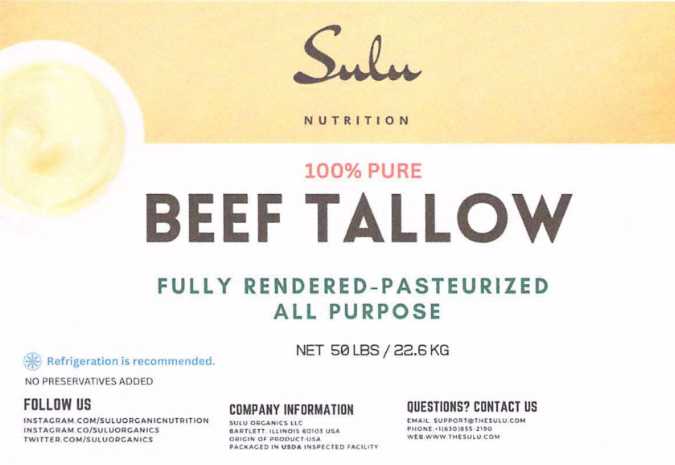A major food safety recall is underway after Sulu Organics LLC pulled approximately 6,166 pounds of pork lard and beef tallow products from the market. The Bartlett, Illinois company produced these items without federal inspection, according to the U.S. Department of Agriculture’s Food Safety and Inspection Service (FSIS).
The recall affects products made between December 2024 and March 2025, which were shipped to stores nationwide and sold online. FSIS classified this as a Class I recall, meaning there’s a “reasonable probability” that eating these products could cause serious health problems or even death.
The issue came to light when consumers noticed something important missing from the packaging – the USDA inspection mark. This circular or shield-shaped symbol tells shoppers that meat products have passed safety checks. When complaints reached FSIS, investigators discovered Sulu Organics had purchased inspected bulk products but repackaged them into smaller containers without required oversight.
Federal inspection ensures proper handling, correct labeling, and prevents contamination during every step of processing.
The recalled items include 50-pound boxes, 7-pound buckets, 4-pound buckets, and 1.5-pound glass jars of beef tallow, plus 4-pound and 7-pound buckets of pork lard. All products bear the “Sulu” brand name.
Similar Posts
So far, no illnesses have been reported. However, FSIS officials worry some products might still be in home refrigerators or pantries. They urge consumers not to eat these items but instead throw them away or return them to the store.
For those concerned about potential health risks, contact a healthcare provider. Questions about the recall can be directed to Bekniyaz Akshayev, Sulu Organics’ owner, at 630-855-2190.

Similar cases have occurred with other companies. Snack Mania Brazilian Delights Corp. recalled approximately 9,722 pounds of chicken products and Common Sense Soap recalled approximately 33,899 pounds of beef tallow – both for missing federal inspection.
The pattern highlights growing challenges as more food companies sell directly to consumers online, sometimes without fully understanding federal requirements. For shoppers, it underscores the importance of checking for that USDA mark, especially when buying meat products from newer or less familiar sources.


















